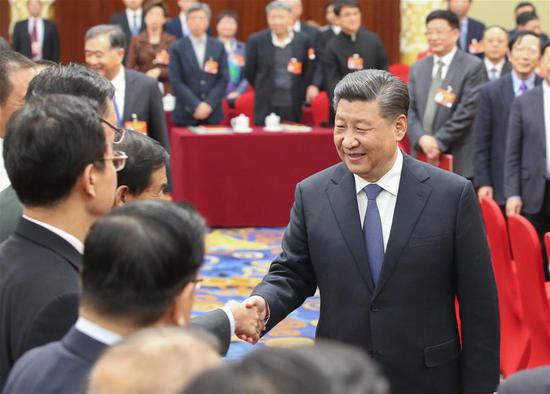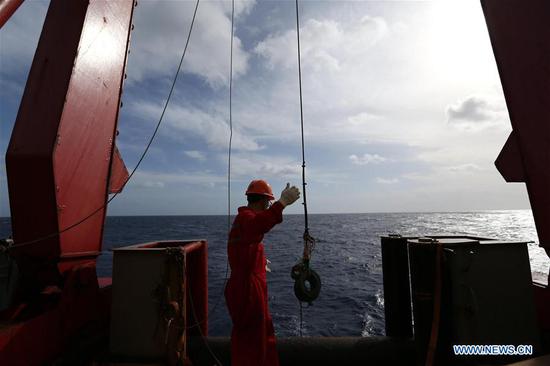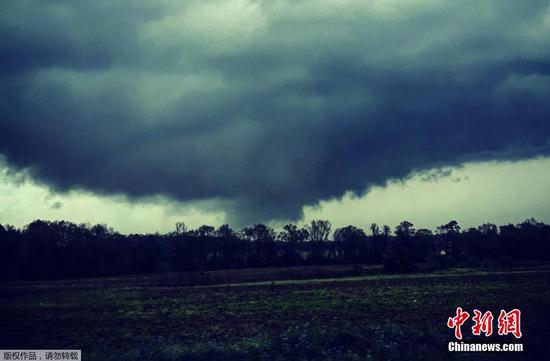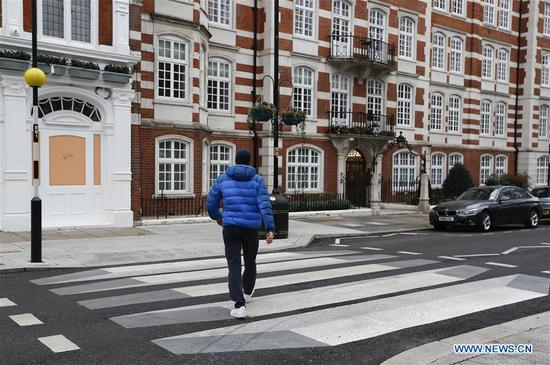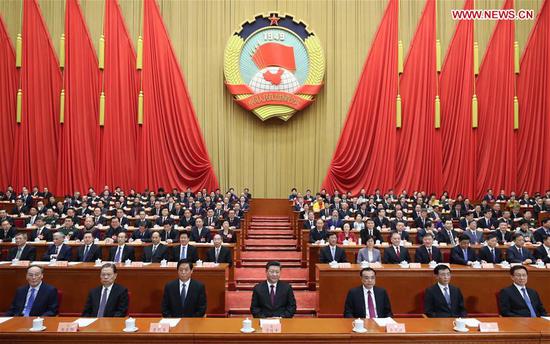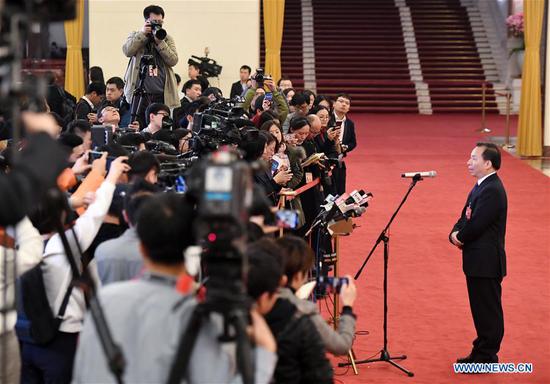Four Republican senators to oppose president's emergency declaration
Senate Majority Leader Mitch McConnell acknowledged on Monday that opponents of U.S. President Donald Trump's declaration of a national emergency along the U.S.-Mexico border have enough votes in the Republican-led Senate to prevail on a resolution aimed at blocking the move.
McConnell, who fell in line behind Trump despite his own misgivings about the declaration, said Trump will veto the resolution but Congress will likely sustain its stance. McConnell's remarks came after fellow Kentucky Senator Rand Paul became the latest GOP lawmaker to say he won't back the White House on the emergency declaration.
"I think what is clear in the Senate is there will be enough votes to pass the resolution of disapproval, which will then be vetoed by the president and then, in all likelihood, the veto will be upheld in the House," McConnell told reporters.
The House of Representatives, which is controlled by Democrats, passed the so-called resolution of disapproval and sent it to the Senate, which is expected to vote before lawmakers leave on March 15 for a weeklong recess.
Senate Republicans have a 53-47 advantage. But four of them have now announced they will vote with Democrats to block Trump, who is seeking to bypass Congress to unlock funds for construction of a wall on the U.S.-Mexico border that he insists will reduce illegal immigration and drug trafficking.
"I can't vote to give extraconstitutional powers to the president," Paul said on Saturday at Western Kentucky University.
In a speech largely praising Trump, Rand said Trump's declaration of a national emergency at the Mexican border is a dangerous precedent.
"I can't vote to give the president the power to spend money that hasn't been appropriated by Congress. We may want more money for border security, but Congress didn't authorize it. If we take away those checks and balances, it's a dangerous thing."
The majority needed
Besides him, other Republican senators who have announced they will defy Trump on the issue are Susan Collins of Maine, Lisa Murkowski of Alaska and Thom Tillis of North Carolina.
With those four, and assuming that all 47 Democrats and their independent allies go against Trump, that would give opponents 51 votes - just past the majority needed.
If the four Republicans don't change their announced intention, the resolution will be sent to Trump, who has said he would veto it.
Several other Republicans, while stopping short of announcing they would vote against Trump, have expressed deep concerns about his move, arguing it is a blatant attempt to expand executive authority.
Last month, Trump signed a bill to keep the government open that also earmarked $1.38 billion to build a wall on portions of the border with Mexico. Trump declared a national emergency to tap billions of dollars in federal money to extend the wall.
Democrats and some Republicans argue that Trump's action is unlawful and, in any case, there is no emergency along the southern border.
After Trump's veto of the resolution, his declaration of an emergency to secure funding will be litigated in court. Trump has said he expects to lose at the appellate level, but some legal observers believe he will win in the U.S. Supreme Court.
Writing in The Wall Street Journal, Peter J. Wallison, a senior fellow at the American Enterprise Institute, former general counsel for the Treasury Department and former White House counsel for Ronald Reagan, said presidents have declared 57 emergencies, including 31 still in effect, since Congress enacted the National Emergency Act in 1976.
"Now we hear congressional complaints that Mr. Trump has somehow managed to overstep his unrestricted authority. Even though they raised no similar objection when (president) Bill Clinton declared a national emergency to prohibit transactions with Sudan (1997) or when (president) George W. Bush used one to impose economic sanctions on Zimbabwe (2003), many in Congress claim to be sure that what is happening on the southern border is not an emergency," Wallison said in his opinion piece.
The difference, Wallison said, is the earlier cases "did not have partisan political implications".























